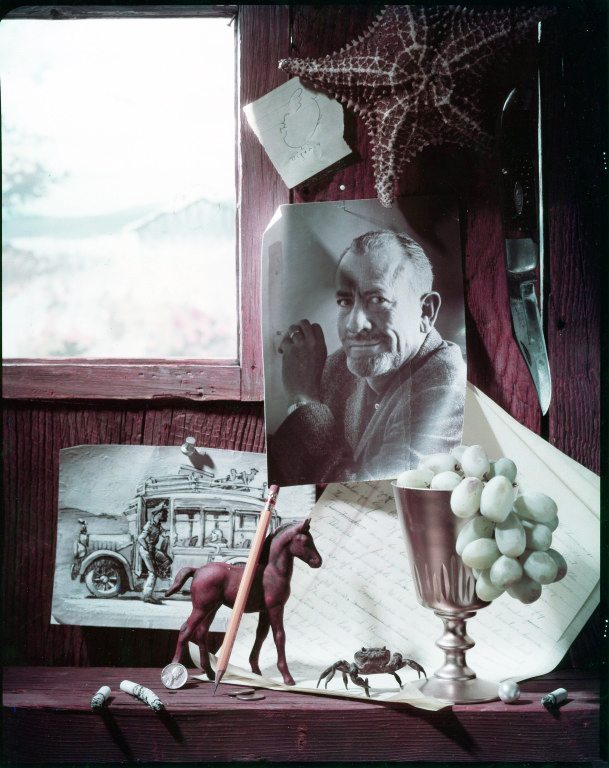Biography

Brief Biography
Born in Salinas, California on February 27, 1902, John Steinbeck remains the quintessential California writer. Beginning in the 1930s, he forged a significant place in the culture and letters of the United States as a writer deeply engaged with place, with marginalized workers and ordinary people, and with the political and social human dramas that confronted him. More than any other writer of the United States in the 1900s, he remained engaged in the struggles of his country. He wrote social histories in the 1930s; deeply ecological works in the 1940s; early accounts of the Cold War when covering the Soviet Union in 1947; cultural studies of Mexico and Mexicans from the mid-1930s to the mid-1950s; and in the 1960s increasingly concerned essays about the people of the United States, including accounts of the U.S. war in Vietnam. John Steinbeck, winner of the 1962 Nobel Prize, wrote as the conscience of his country for nearly 40 years. He died 20 December 1968 in his New York City apartment.
Biographical Resources Offered by the Center for Steinbeck Studies Include:
- John Steinbeck, American Writer is an in-depth biography of Steinbeck written by Dr. Susan Shillinglaw.
- View a Chronology of events in John Steinbeck's Life by Robert B. Harmon.
- Find an impressive list of Awards Won by Steinbeck.
- Learn about Steinbeck's Homes and Locations in California and New York.
- Read a transcript of Steinbeck's Nobel Prize Speech.
- Pigasus is Steinbeck's trademark symbol. Read Elaine Steinbeck's explanation of its origins.
- Take a Virtual Tour of Steinbeck Country.
- Find a Study of Steinbeck's Life and Works.